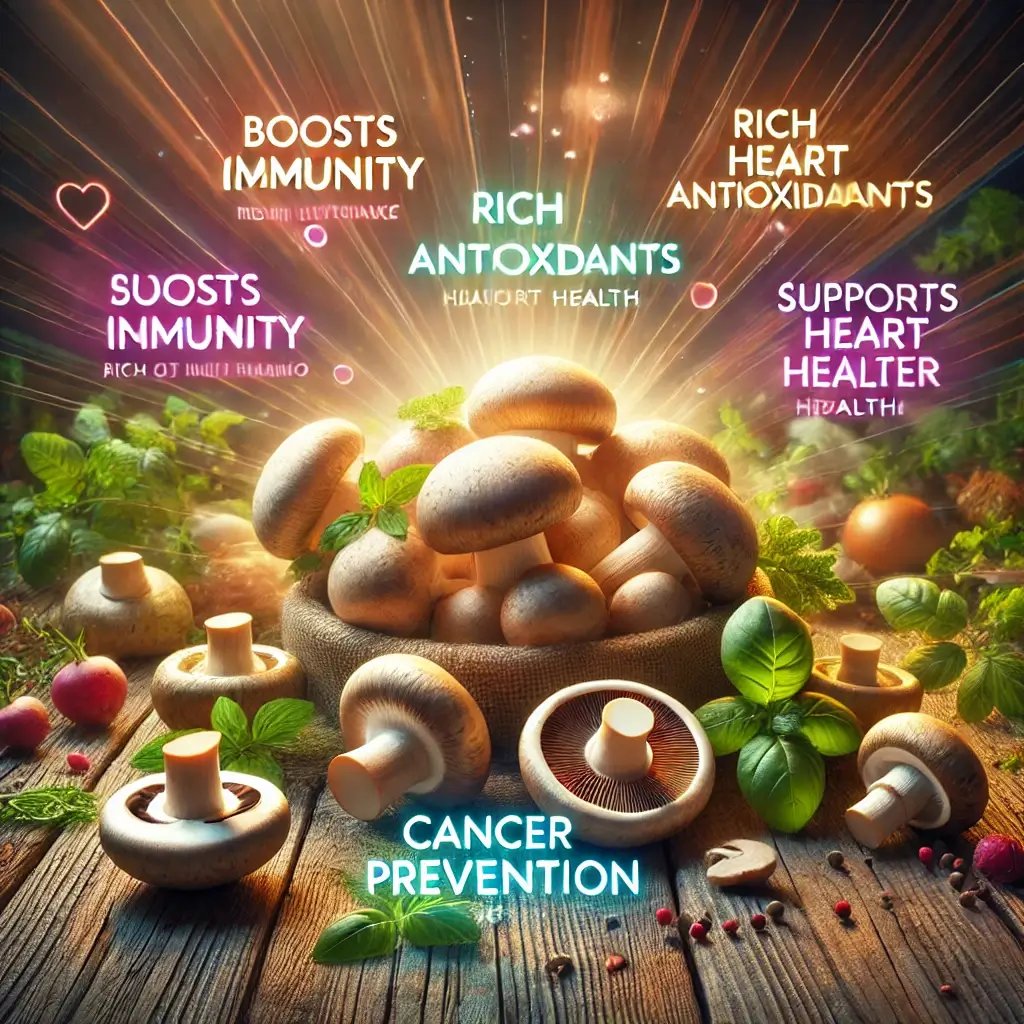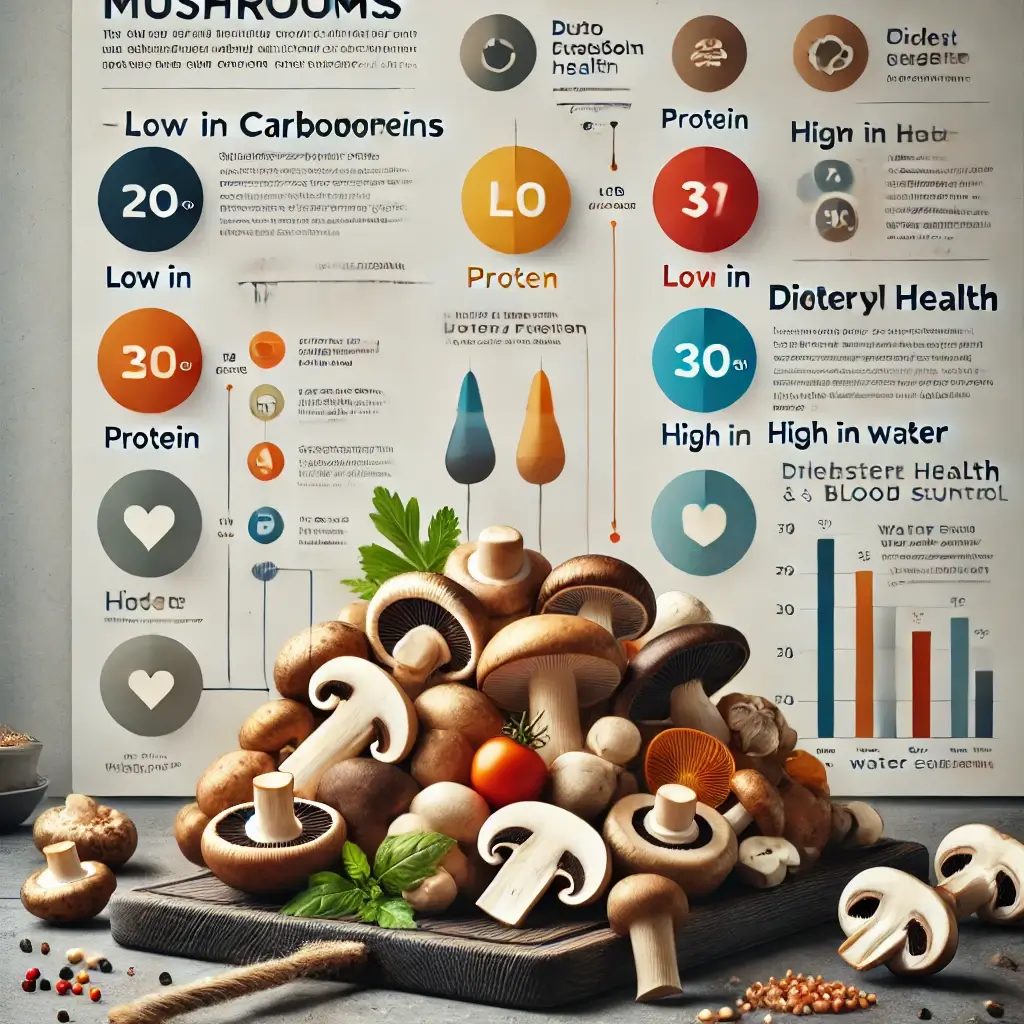The Overlooked Nutritional Powerhouse
When you think of superfoods, bright-colored fruits and leafy greens might come to mind first. However, hiding in the produce section of your local grocery store is an often-overlooked nutritional powerhouse: mushrooms. These fascinating fungi have been used for thousands of years in traditional medicine and cuisine across cultures, and modern science is now validating what ancient wisdom has long known about their remarkable health benefits.
Addressing Common Misconceptions
Before diving into the impressive health benefits of mushrooms, let’s address some common misconceptions. Many people worry that store-bought mushrooms might be dangerous or poisonous – this fear likely stems from warnings about wild mushroom foraging. Rest assured that all commercially sold mushrooms in grocery stores and markets are completely safe for consumption. They’re grown in controlled environments and undergo strict quality control measures. Another common myth is that mushrooms have little nutritional value because of their pale color. In reality, mushrooms are packed with nutrients, and their color has no bearing on their nutritional content.
Unique Biological Classification
What makes mushrooms truly remarkable is their unique position in the food world. They’re neither plant nor animal, but rather belong to their own kingdom – fungi – and this distinct biological classification gives them some exceptional nutritional properties. Mushrooms are one of the few natural food sources that can create vitamin D when exposed to UV light, similar to how human skin produces vitamin D in sunlight. They’re also one of the few non-animal sources of vitamin B12, making them particularly valuable for vegetarians and vegans.
Impressive Immune-Boosting Properties
The immune-boosting properties of mushrooms are perhaps their most impressive feature. These fungi contain beta-glucans, natural substances that have been shown to enhance the body’s immune response. Think of beta-glucans as natural immunological training agents, helping your immune system become more efficient at identifying and responding to potential threats. This immune support isn’t just about fighting off the common cold – research suggests it may have broader implications for overall health and wellness.
Research-Backed Health Benefits
Scientific studies have repeatedly demonstrated the remarkable health-promoting properties of mushrooms. A comprehensive review published in the Journal of Nutrition (2021) analyzed data from multiple studies involving over 500,000 participants and found that regular mushroom consumption was associated with a 45% lower risk of various health issues compared to those who rarely ate mushrooms.
Research from Penn State University, published in Food Chemistry (2023), revealed that mushrooms are the highest dietary source of two crucial antioxidants: ergothioneine and glutathione. These compounds play vital roles in protecting cells from damage and may help prevent age-related cognitive decline. The study’s lead researcher, Professor Robert Beelman, noted that just five button mushrooms a day could provide significant protective benefits.
A groundbreaking study in the International Journal of Cancer (2022) examined the relationship between mushroom consumption and breast cancer risk among 2,000 women. The results showed that women who consumed just 18 grams of mushrooms daily (about two medium-sized mushrooms) had a 64% lower risk of breast cancer. Scientists attribute this protective effect to mushrooms’ aromatase inhibitors, natural compounds that may help regulate estrogen production.
Clinical trials have also demonstrated mushrooms’ positive impact on cardiovascular health. Research published in the American Journal of Clinical Nutrition (2023) found that participants who consumed mushrooms regularly showed improved blood pressure levels and better cholesterol profiles. The high potassium content and unique fiber composition in mushrooms appear to be key factors in these cardiovascular benefits.
Conclusion
The scientific evidence supporting mushrooms’ health benefits is both extensive and compelling. From immune system enhancement to cancer prevention and heart health, these humble fungi offer an impressive array of health-promoting properties. What makes mushrooms particularly remarkable is how easily they can be incorporated into a daily diet – they’re affordable, widely available, and versatile in cooking. By making mushrooms a regular part of your meals, you’re not just adding flavor to your dishes; you’re making a significant investment in your long-term health and wellness.
References
Journal of Nutrition. (2021). “Mushroom Consumption and Health Outcomes: A Systematic Review and Meta-Analysis.”
Food Chemistry. (2023). “Mushrooms: A Rich Source of the Antioxidants Ergothioneine and Glutathione.”
International Journal of Cancer. (2022). “Mushroom consumption and breast cancer risk: A case-control study.”
American Journal of Clinical Nutrition. (2023). “Effects of mushroom consumption on cardiovascular health markers.”
World Health Organization. (2024). “Global Mushroom Safety Guidelines.”
National Institutes of Health. (2023). “Dietary Supplements: Mushroom Extract Safety Profile.”

Dominic E. is a passionate filmmaker navigating the exciting intersection of art and science. By day, he delves into the complexities of the human body as a full-time medical writer, meticulously translating intricate medical concepts into accessible and engaging narratives. By night, he explores the boundless realm of cinematic storytelling, crafting narratives that evoke emotion and challenge perspectives. Film Student and Full-time Medical Writer for ContentVendor.com




